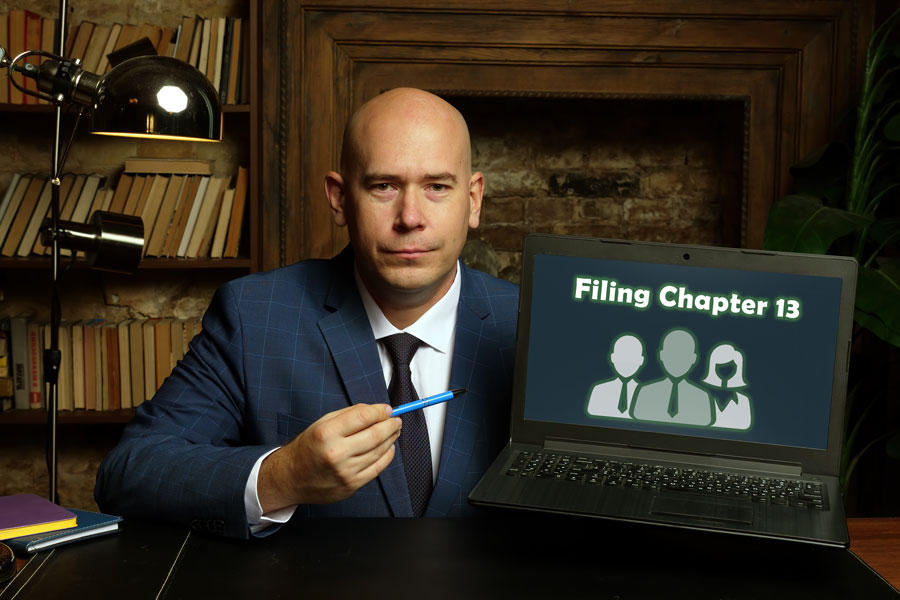Getting Funded After Chapter 13 Bankruptcy
Financial issues can be one of the most stressful things people can experience, and when it gets to its worst point – being unable to pay your debts and having to file for Chapter 13 bankruptcy protection – many people can see nothing but years of ruin before them as they scrimp and save in hopes of one day restoring their prior economic standing.

Hopes of Home Ownership After Bankruptcy
A chapter 13 bankruptcy – also known as a “wage earner’s plan” – enables individuals with regular income to develop a plan to repay all or part of their debts. Under this chapter, debtors propose a repayment plan to make installments to creditors over three to five years. Unlike Chapter 7 bankruptcy, with chapter 13 your assets are not liquidated and used to settle your debts, and at the end of your repayment period, any remaining debt is discharged.
But despite what chapter you file for, your credit score is going to take a serious hit and lenders are going to view you as a risk for several years after your debt has been discharged.
Regardless, having to declare chapter 13 bankruptcy can be especially vexing if you are entertaining hopes of home ownership, but despite what you might think, doing so does not disqualify a borrower from obtaining a Federal Housing Administration (FHA) or U.S. Department of Veterans Affairs (VA)-insured mortgage, provided that the lender documents that.
Just because you were forced into a state of insolvency by dire circumstances, there are still ways for people who are renting to acquire a home mortgage – or refinance an existing one – although the pathway towards that goal is longer and a bit more complex.
How to Purchase or Refinance After Chapter 13 Bankruptcy
Applying for a home mortgage or refinancing loan after declaring chapter 13 bankruptcy takes time. A borrower initially needs to finish their initial bankruptcy waiting period, which sometimes can take several years. However, depending on the type of loan you’re interested in, you may be able to acquire a loan in as little as one year into the repayment plan you have with your creditors; as long as your payments have all been on-time. Either that, or you will have to wait for two years to pass after you discharge your debts.
In addition, there are a basic set of guidelines that a prospective borrower in bankruptcy must adhere to in order to increase their chances of successfully getting a loan. First up, you’ll need to beef up two of your three of your credit scores to above 580, with your FICO score currently needing to be 600 due to COVID-related issues.
You also can only have a maximum of one 30-day late payment with your creditors within the last two years, in addition to your rent or mortgage payments needing to have been made on-time during that same span of time as well.
You will also need to produce proof that you have made the payments on your repayment plan on-time for a full 12 months, as well as providing documentation of your full repayment history from the beginning of your bankruptcy.
After your loan has closed, there must be one month’s worth of the new housing payments remaining, known as “post-closing reserves.”
And finally, in most jurisdictions, bankruptcy is imposed by a court order – often initiated by the debtor – and the court must issue its approval of the loan before it can proceed. A lender, once you have been pre-qualified, can estimate the terms of the loan and send documentation regarding it to your legal counsel who can then submit it to the court in hopes of getting you approved to continue the loan process. Time of court approval varies greatly depending on jurisdiction and various other factors; sometimes it can be granted in as little as a week, whereas other instances can take months.
Conventional Mortgage Loans
When it comes to conventional loans, however – meaning loans that aren’t FHA or VA-backed – you must wait for a full two years after you have successfully discharged your debt before you could be considered. Unfortunately, lenders that aren’t backed by a U.S. government agency typically will not offer earlier options for getting a home or refinancing a loan to individuals who have declared chapter 13 bankruptcy.
Being forced to declare chapter 13 bankruptcy can be a harrowing experience for anyone, but it doesn’t automatically mean that your plans for the future have to be put on hold. With time, effort, and perseverance, it is still possible for those actively repaying their debts to get an FHA or VA-backed home mortgage or refinancing loan.

